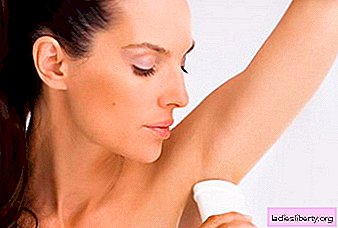Psoriasis is a chronic inflammatory and non-infectious skin disease. Psoriasis is manifested in symmetrically located and sharply defined bright red plaques, covered with small scales of silver color.
The most important causes are hereditary disease, immune response, certain drugs, infections, and injuries.
For treatment, glucocorticoids, vitamin D derivatives, keratolytics and immunomodulators are used. It is necessary to treat this disease under the supervision of a doctor!
Causes of psoriasis
Psoriasis is caused by a change in skin cells (keratinocytes), which leads to hyperproliferation, incomplete differentiation and hyperkeratosis. At the same time, migration of immune cells, expansion of blood vessels and stimulation of vascularization are observed. Unlike normal skin, in which epidermal skin cells migrate for about 4 weeks from the base to the stratum corneum, with psoriasis this process takes about 3-5 days.
The most common causes are:
• Hereditary predisposition;
• Immune and inflammatory response: T-lymphocytes;
Risk factors:
• Infections;
• Stress;
• Skin lesions;
• medicines;
• malaria;
• Nonsteroidal anti-inflammatory drugs;
• steroids;
• Beta blockers.
Psoriasis can also affect joints (psoriatic arthritis) and nails. Since the skin has an important social function, the disease is a psychological burden for patients and adversely affects the quality of life.
Treatment of psoriasis at home is not possible, since in many cases highly effective immunosuppressive drugs are required. Herbal remedies have a minor therapeutic effect, which does not help get rid of the disease or stop its development.
Psoriasis: home treatment with mineral procedures
1. Sulfide mineral waters.
Doctor's comment: sulfide mineral waters have a bacteriostatic effect - they prevent the growth of bacteria. When taken orally, a laxative effect is added. Sulfur has a fungicidal effect and can kill parasites. It has been used in the past to treat acne, scabies and superficial mycoses.
In autoimmune diseases, mineral waters are useless because they do not have a clinically significant effect on the patient's immune system.
2. Therapeutic mud.
Doctor's comment: peloid therapy is used for various diseases - osteoporosis, rheumatism, neuritis, arthritis, injuries, rehabilitation after orthopedic surgery.
In clinical studies, the safety of mud baths has not been proven, therefore, all patients with psoriasis should be discarded. The anti-inflammatory and antiviral effect is also not proven. According to scientists, the therapeutic effect does not go beyond the usual hyperthermic massage.
3. Radon mineral waters.
Doctor's comment: the effect of radon baths is based on a combination of mild hyperthermia, high humidity and absorption of radon through the skin and lungs: temperatures above 37.5 degrees and high humidity of more than 70% leads to the so-called "therapeutic hyperthermia". Under these conditions, body temperature rises, muscles relax, and the body absorbs radon better.
The positive effects of low-dose radon, according to proponents of the method, are caused by the activation of "the body's own defense mechanisms" from the formation of radicals. At the same time, it is believed that radon reduces DNA synthesis, and this should be a possible mechanism of antirheumatic activity. This may explain the effect on asthma or rheumatism. It is also believed that low-dose ionizing radiation has a protective effect against cancer, which contradicts the prevailing opinion of the medical community.
Radiobiologists Lucky put forward the hypothesis of "hormesis" based on experiments with irradiated plants and animals. However, the seriousness of Lucky’s work is mixed, as he considers certain effects of atomic bomb explosions to be good for his health. The effectiveness and safety of the procedure has not been proven. Nevertheless, it is recommended to abandon radon baths due to lack of evidence and the lack of clinical studies.
4. Baths with table salt.
Doctor's comment: the prolonged action of salt on the skin has a local dehydrating effect. Drying of the skin can aggravate the course of psoriasis, as well as the structural and functional state of the epithelium. It is recommended to abandon baths with a large amount of sodium chloride.
Psoriasis: treatment at home with herbal medicine
20 g of rhizomes of calamus swamp and 100 ml of ethyl alcohol insist one and a half weeks out of the reach of the light. Then it is necessary to strain the mixture and take 20 drops per day in 3 divided doses.
Doctor's comment: leaves contain asaron, eugenol, various tannins and bitter substances. Rhizome contains from 1.7 to 9.3% of essential oils. The aerial parts of the plant contain ascorbic acid, proanthocyanidins, fatty acids and carbohydrates (fructose, glucose and maltose).
Swamp calamus promotes secretion of the stomach and enhances appetite. As an active ingredient, it can fight fatigue and weakness as a result of gastrointestinal discomfort. In psoriasis, marsh calf is completely ineffective. Topical application does not reduce itching and inflammation.
Grind the string, pour boiling water, strain and take 3 times a day.
Doctor's comment: in herbal medicine, a plant is described as useful for treating kidney stones and reducing fever. Other effects have not been described, so the recipe is based on folk experience, not clinical research.
15 drops of oregano infusion 4 times a day.
Doctor's comment: oregano contains vitamins A and B1, potassium, calcium and phosphorus. Essential oil is rich in carvacrol, as a result of which it has an antiseptic effect.
The plant does not have an immunosuppressive effect, so the therapeutic effect remains at the placebo level.
The roots of burdock.
Doctor's comment: in folk medicine, burdock root is used to slow hair loss and thus prevent baldness. That's why it is found in a large number of hair lotion formulas.
The root is used to treat skin diseases - acne, eczema, abscesses, or psoriasis. It has a symptomatic effect (relieves pain, burning, itching and redness) rather than etiotropic. The treatment of psoriasis at home with the help of burdock is allowed to eliminate clinical manifestations.
Psoriasis: home treatment with exotic methods
Selective phototherapy.
Doctor's comment: selective phototherapy leads to increased evaporation of water through the skin and, consequently, to a strong local dehydration. The retina reacts particularly sensitively to high-energy light rays. To avoid damage, the eyes of the treated children should be covered with special "glasses". Even thin and sensitive skin of a newborn can react with inflammation to treatment.
Irradiation at elevated levels of bilirubin leads to brown discoloration of the skin and internal organs (bronze baby syndrome). With psoriasis, the effectiveness is clinically proven, but the side effects are significant. Phototherapy is prohibited without consulting a doctor.
Homeopathy.
Doctor's comment: The low concentration of homeopathic remedies, which often do not even have a single molecule of the starting substance, was the basis of criticism of this method. Modern advocates of homeopathy have proposed the concept of "memory of water", according to which a liquid "remembers" the substances mixed in it and transfers the effects to a person when consumed. This concept is incompatible with the modern understanding of matter, and it has never been shown that water memory has any detectable effect. Studies have found that the main effects of the active ingredient come from higher doses, not lower.
Outside the community of complementary and alternative medicine (CAM), scientists have long considered homeopathy a pseudoscience or quackery. There are abstract concepts of theoretical physics that offer explanations of how and why homeopathy helps. However, laymen offer explanations and these arguments often contain many factual errors.
Treatment of psoriasis at home can not be carried out independently. Psoriasis requires prolonged and consistent immunosuppressive therapy under the supervision of a physician. If hypovitaminosis D is detected, it must be eliminated by the additional use of cholecalciferol. The treatment regimen depends on the root cause.











